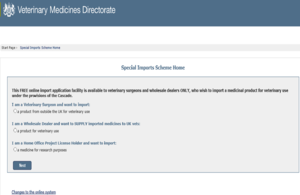Youth justice work at The Children’s Society
Tell us about The Children’s Society
The Children’s Society is a national charity that works to improve the lives of vulnerable children and young people in Britain. We deliver services and campaign to make children’s lives better and change the systems that are placing them in danger. This includes children in care, those who go missing from home, those at risk of criminal and sexual exploitation, and refugees.
How does your work cross into youth justice?
We have a number of national programmes working systemically with partners to identify and unblock the barriers that face children and young adults at risk of exploitation. This includes direct work with children who are experiencing exploitation. It also includes work on school exclusions and the point of arrest as a ‘reachable’ moment to prevent children entering the criminal justice system. We work closely with the police, DfE and the Home Office on child exploitation and trafficking awareness programmes with the public sector and service industries so that children get the help they need as early as possible. We also research child exploitation, adding to the evidence base and evaluating what works. Last year, we published the Counting Lives report focusing on criminal exploitation and children.
What have you been working on recently that might benefit children in the youth justice system?
Our national Prevention, Tackling Child Exploitation and Disrupting Exploitation programmes work with local and national partners to help identify and work with children at risk of exploitation. In particular, we have been using system-informed approaches to build capacity across the sector in these areas of work We work closely with the police to ensure child-focused responses in custody. We advocate for appropriate use of the modern slavery defence when there is a risk that children who have been exploited may be prosecuted. We have identified ‘reachable’ moments to intervene with children at risk of exploitation or who are being exploited and work in partnership with others to test approaches. We have created a range of resources for parents, professionals and others who work with children. These are available on our website.
What do you think are the biggest issues for these children at this moment of the pandemic?
During lockdown, protective systems like schools and community fell away. This has left some children more vulnerable to abuse in the home, criminal exploitation and extra-familial abuse. Increased isolation has affected children’s mental health and wellbeing, particularly for those most vulnerable. Perpetrators adapted quickly to the changed context and statutory agencies have found it difficult to keep up with these changes. Children may find it hard to reintegrate into education and without the right support and resources in schools there is a risk of a spike in school exclusions.
How do you work with the YJB?
We see ourselves as a key strategic partner of the Youth Justice Board, Home Office, police, councils and voluntary sector organisations. We advocate the importance of early identification and intervention, ensuring children who are exploited are supported as victims. We use knowledge gained from our frontline practice, research and evaluation of what works to help shape national policy and strategy. We also want to learn from others and the Youth Justice Board is a vital conduit.
How have you found being a part of a stakeholder forum?
We only recently joined the forum. However, it has already proved an important platform to discuss developments across the sector, share intelligence, shape one another’s plans and use the Youth Justice Board’s influence to get our voices heard by the Government. Its value was evident during lockdown as we shared experiences of how we adapted and emerging issues facing children. We have flagged developments in our Disrupting Exploitation and Prevention programmes and highlighted the importance of early intervention to support children. Going forward, the forum will allow collaborative conversations to develop.
